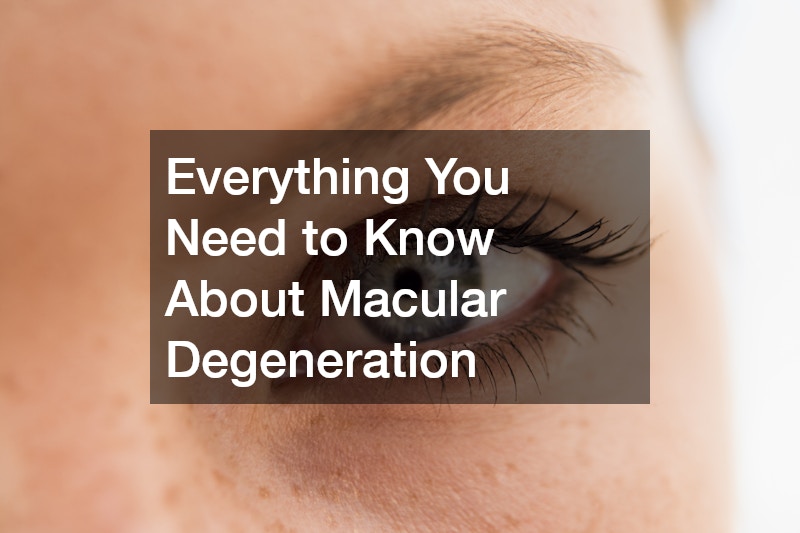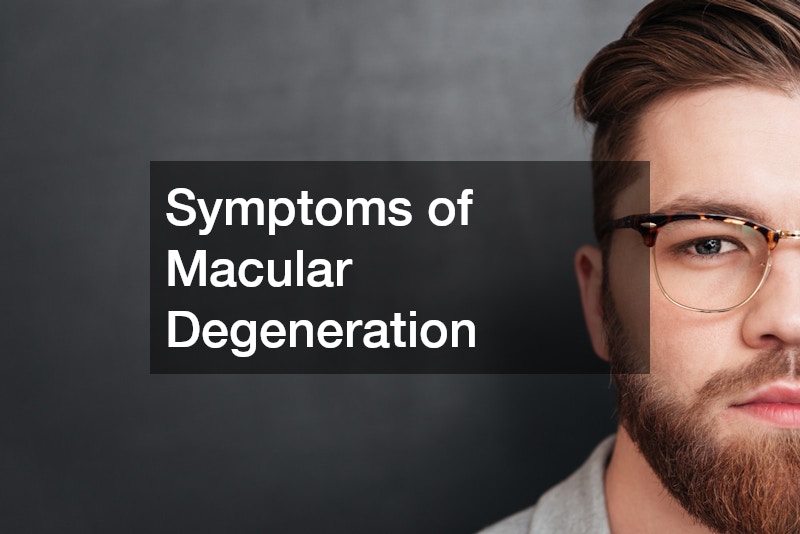

Macular degeneration is one of the leading causes of vision loss, particularly in older adults. It affects the macula, the central part of the retina responsible for sharp, detailed vision. While there is no cure for macular degeneration, treatments such as macular degeneration injections have proven effective in managing the condition and slowing its progression. This article provides a comprehensive overview of macular degeneration, including its types, symptoms, causes and available treatments.
What Is Macular Degeneration?
Macular degeneration is a condition that damages the macula, the part of the retina responsible for central vision. This results in blurred or reduced central vision, while peripheral vision is usually unaffected. It’s important to note that macular degeneration doesn’t cause total blindness, but it can significantly impact daily activities such as reading, driving and recognising faces.
There are two main types of macular degeneration: dry and wet.
- Dry Macular Degeneration: The most common form, dry macular degeneration develops slowly and results in the gradual thinning of the macula. While it progresses at a slower rate, it can still lead to significant vision loss over time.
- Wet Macular Degeneration: This is a more advanced and aggressive form of the condition. It occurs when abnormal blood vessels grow beneath the retina, leaking fluid and causing rapid vision loss. Wet macular degeneration is often treated with macular degeneration injections to slow its progression.
Symptoms of Macular Degeneration
The symptoms of macular degeneration can vary depending on the type and stage of the condition. Common signs include:
- Blurred or distorted central vision.
- Difficulty reading or recognising faces.
- A dark or empty area in the centre of your vision.
- Difficulty adjusting to low light levels.
- Colours may appear less vibrant.
As the condition progresses, central vision becomes increasingly compromised, which can make everyday tasks more challenging. It’s important to visit an eye care professional if you notice any changes in your vision, as early detection and treatment can help preserve sight.
Causes and Risk Factors
While the exact cause of macular degeneration is still not fully understood, several risk factors have been identified:
- Age: The risk of developing macular degeneration increases with age, particularly after the age of 50.
- Genetics: A family history of macular degeneration can increase your risk of developing the condition.
- Smoking: Smoking is a significant risk factor, as it increases the likelihood of macular degeneration developing.
- High blood pressure and cardiovascular disease: These health issues can increase the risk of developing macular degeneration.
- Diet: A poor diet, particularly one lacking in fruits and vegetables, may contribute to the development of macular degeneration.
Although these factors can increase the risk, it’s important to remember that macular degeneration can also occur in people without any of these risk factors.
Treatment Options for Macular Degeneration
While there is no cure for macular degeneration, several treatment options are available to help manage the condition and slow its progression. These include lifestyle changes, supplements and, for more advanced cases, medical interventions like macular degeneration injections.
Lifestyle Changes and Supplements
For those with early-stage macular degeneration, lifestyle changes and dietary supplements may help slow the progression. Consuming foods rich in antioxidants, such as leafy greens, can support eye health. Additionally, the Age-Related Eye Disease Study (AREDS) found that certain vitamin and mineral supplements could help slow the progression of dry macular degeneration.
Macular Degeneration Injections
For individuals with wet macular degeneration, macular degeneration injections are the most common and effective treatment option. These injections involve the administration of anti-VEGF (vascular endothelial growth factor) medications directly into the eye. Anti-VEGF drugs, such as ranibizumab, aflibercept and bevacizumab, work by blocking the VEGF protein that causes the abnormal growth of blood vessels beneath the retina. By inhibiting VEGF, these injections can reduce fluid leakage, stabilise vision and even improve vision in some cases.
Macular degeneration injections are typically given at regular intervals, such as once a month, depending on the severity of the condition and the patient’s response to treatment. In some cases, the frequency of injections may decrease over time as the condition stabilises.
Laser Therapy
Laser therapy can also be used to treat wet macular degeneration. This treatment uses focused light to destroy abnormal blood vessels beneath the retina. However, it’s typically less commonly used now due to the effectiveness of macular degeneration injections.
What to Expect During Macular Degeneration Injection Treatment
Receiving a macular degeneration injection is a quick and generally painless procedure. The eye will be numbed with a local anaesthetic, and a sterile needle will be used to inject the medication directly into the vitreous gel inside the eye. The entire process typically takes just a few minutes.
After the injection, you may experience mild discomfort, redness or blurry vision, but these side effects usually resolve within a few hours or days. Regular follow-up appointments with your ophthalmologist will be necessary to monitor your condition and determine whether additional injections are needed.
Macular degeneration is a leading cause of vision loss, but advancements in treatment, such as macular degeneration injections, have made it possible to manage the condition and preserve vision. Whether you’re dealing with the dry or wet form of the condition, early detection and treatment are crucial to slowing its progression and maintaining a good quality of life. If you or a loved one are experiencing vision changes, consult with an eye care professional to explore the best treatment options available. With the right approach, it is possible to manage macular degeneration and protect your vision for years to come.
.



